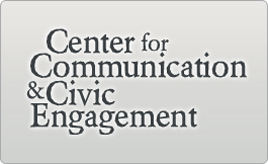RESOURCE DATABASE
Books
Deep Economy: The Wealth of Communities and the Durable Future
In this 2007 book, author Bill McKibben has written a powerful and provocative manifesto, which challenges the prevailing view of our economy that more is better. McKibben puts forward a new way to think about the things we buy, the food we eat, the energy we use, and the money that pays for it all. The animating idea of the book is that we need to move beyond “growth” as the paramount economic ideal and pursue prosperity in a more local direction, with cities, suburbs, and regions producing more of their own food, generating more of their own energy, and even creating more of their own culture and entertainment.
Falling Behind: How Rising Inequality Harms the Middle Class
In this 2007 book, economics professor and New York Times columnist Robert H. Frank explores the very meaning of happiness and prosperity in America today. Drawing from up-to-date economic data and everyday examples, he compels us to rethink how and why we live our economic lives the way we do. Why are middle-income families that don’t earn much more than they did several decades ago, buying bigger cars, houses, and appliances? To pay for them, why are they spending more than they earn and carrying record levels of debt? According to Frank, the answer has to do with increased concentrations of income and wealth at the top of the economic pyramid that have set off “expenditure cascades” that raise the cost of achieving basic goals for the middle class.
The Economics of Happiness: Building Genuine Wealth
In this 2007 book, ecological economist Mark Anielski explores why rates of happiness have remained largely unchanged and many indicators of social and economic well-being have been in decline since the 1950s in spite of increasing economic prosperity and material consumption over the past 50 years. He asks how we can redefine economic progress in accordance with what matters most to our quality of life: supportive relationships, meaningful work, a healthy environment and spiritual well-being. In the process, he presents us with a new economic model, which balances the five capitals of what he calls “Genuine Wealth”: human capital, social capital, natural capital, built capital, and financial capital.


